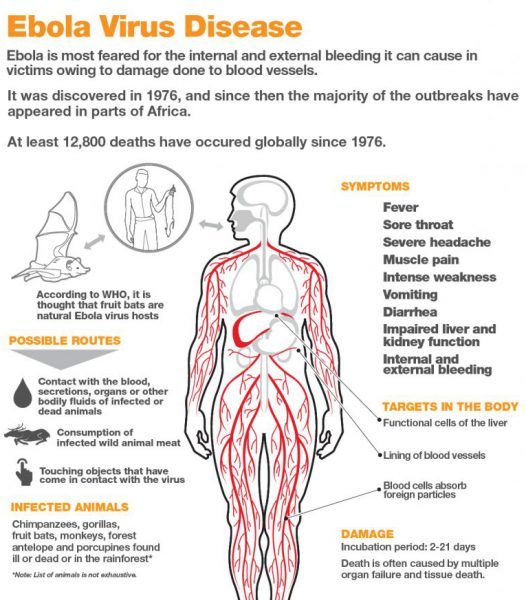In the Democratic Republic of Congo (DRC), scientists are one step closer to finding a cure to the deadly Ebola virus. They have found two potential drugs that have shown survival rates as good as 90 per cent, provided that patients are treated early.
The two potential drugs are Regeneron’s REGN-EB3 and a monoclonal antibody called mAb114. While the former has been developed from antibodies generated with mice that were infected with the virus, the latter has been developed using antibodies from survivors of the Ebola virus.
These two drugs have shown a significantly better survival rate when compared to the other two treatments: ZMapp (Mapp Biopharmaceutical) and Remdesivir (Gilead Sciences), which have now been dropped from trials.
The decision to drop these two drugs is based on the study data from around 500 patients.
“Moving forward, these are the only drugs that future patients will be treated with,” the World Health Organization (WHO) said in a statement released recently.
? ? ? Two of the four #Ebola drugs being tested in #DRC, have been shown to be more effective. They are the ones that will be used with future patients ? https://t.co/Jcq97oP55t pic.twitter.com/H96wcwG2CI
— World Health Organization (WHO) (@WHO) August 12, 2019
Ebola virus has killed at least 1,800 and has been spreading in Eastern DRC since August 2018. The Ebola outbreak in West Africa from 2013 to 2016 resulted in 11,300 deaths.

“The trials are positive but are not enough to end the epidemic. This news is fantastic. It gives us a new tool in our toolbox against Ebola, but it will not in itself stop Ebola,” Mike Ryan, Head of WHO Emergencies Programme told reporters.
Isn’t this a giant leap in the field of healthcare? What do you think?
0





